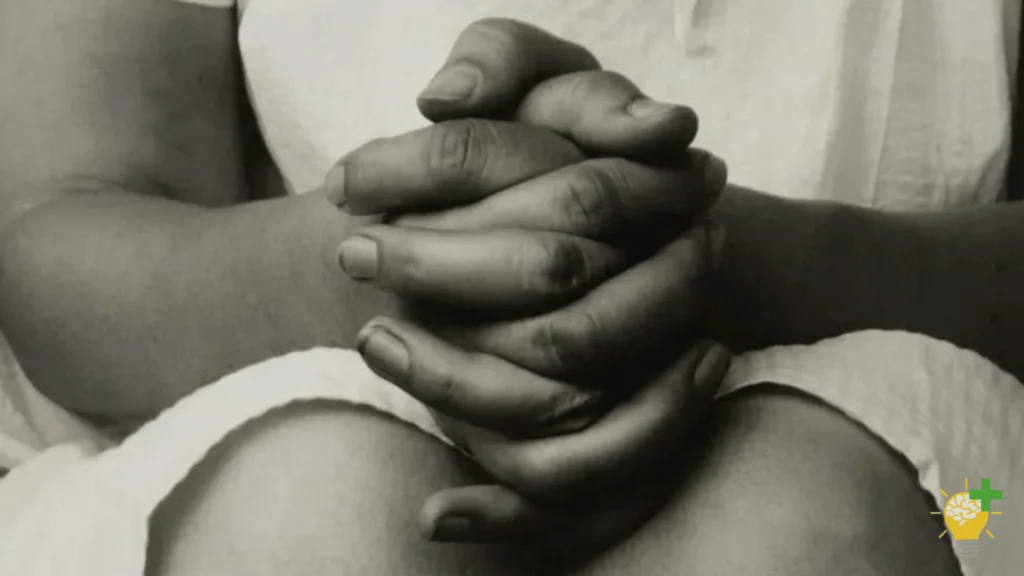Ever found yourself in a jittery state, unsure if what you’re experiencing is anxiety or just plain nervousness? We’ve all been there.
It’s time to unravel the contrasting characteristics of anxiety vs nervous. In this quick guide, I’ll explain the distinct features that set anxiety apart from nervousness. Additionally, I’ll provide practical coping strategies to help you confidently navigate the emotional spectrum.
Anxiety vs Nervous: Understanding the Difference
According to the American Psychological Association, anxiety is a long-acting, future-oriented response focusing on a general threat. It comes with worrisome thoughts, feelings of tension, and physical symptoms like a rapid heartbeat.
You will likely experience recurring intrusive thoughts if you have an anxiety disorder. And while the intensity may subside occasionally, it doesn’t completely disappear.
On the other hand, nervousness is your body’s natural response to stressful situations or events. Although it can feel uncomfortable, it usually disappears as soon as the nerve-wracking event or situation is over.
Typically, the symptoms of nervousness are mild and usually appear before an event or situation you consider stressful. You can still perform the nerve-wracking activity and carry on with your life, even if you feel nervous.
In summary:
- Anxiety is persistent and ongoing, while nervousness is temporal.
- The feeling of nervousness is not as intense as anxiety.
- Anxiety can interfere with daily life, but that’s rarely the case with nervousness.
- Anxiety is a more generalized feeling, but when you are nervous, it is usually in response to something specific.
- While you can easily manage nervousness with self-care, treating anxiety disorders may require medication, therapy, or both.
Anxiety vs Nervous: How Anxiety Differs From Being Nervous

Have you ever had a guest who overstays their welcome? That’s what anxiety feels like. It hangs around, causing persistent worry and fear.
But what sets it apart from everyday jitters? Let’s take a closer look:
The Brain on Overdrive
Picture your brain as a control center with an overly sensitive alarm system. Research shows that people with anxiety disorders usually have increased activity in the amygdala (the emotion-processing center of the brain).
It’s like having a smoke detector that goes off for every tiny spark. This explains why anxiety sticks around longer.
Racing Thoughts and What-If Scenarios
Anxiety isn’t just a feeling; it’s a thought tornado. People with anxiety disorders tend to interpret situations as more threatening, even when they’re not.
If you are anxious, your mind and imagination will likely conjure up worst-case scenarios. In other words, you spend time overthinking instead of taking actual steps to prevent the things you don’t want.
Interference With Daily Life
While worry is normal, anxiety is irrational, and the emotional state can interfere with your daily life, especially if it becomes chronic.
You may avoid certain situations (including important or beneficial ones) out of irrational worry. This can make you miss out on opportunities based on unfounded fears and concerns.
Symptoms of Anxiety
There’s a wide range of anxiety symptoms, depending on the specific disorder, its cause, severity, and the surrounding circumstances. Generally, the symptoms include:
- Fear of losing control
- Memory issues
- feeling on edge
- Fear of dying
- Feeling irritable or easily frustrated
- Feeling easily distracted or having trouble concentrating
You may also experience physical symptoms such as:
- Dizziness
- Chest pain
- Dry mouth
- Choking sensations
- Shortness of breath
- Increased heart rate
- feeling rigid or tense
- Uncontrollable shaking or trembling
- Hyperalertness (constantly looking out for potential threats or dangers)
- Cramps, nausea, diarrhea, or other abdominal symptoms
Anxiety vs Nervous: How Being Nervous Differs From Anxiety

If you’ve ever felt the butterflies before a presentation or the sweaty palms on a first date, you already know the experience of being nervous. Think of it as the temporary troublemaker; it comes and goes and is usually triggered by certain situations or events.
While nervousness is closely related to anxiety, it is less intrusive. Here are a few characteristics that set nervousness apart from anxiety:
The Fight-or-Flight Response
When you’re nervous, your body activates its inner alarm system, pumping you with adrenaline. Research from Stanford University explains that this “fight-or-flight” response gears you up for action. It’s like feeling a rush of energy, ready to conquer that nerve-wracking moment.
Triggered by Specific Situations
Unlike anxiety, which sneaks up unexpectedly, nervousness usually comes in response to a triggering event.
It is situation-specific, like the jitters before a big exam or a job interview. Once the event is over, nervousness tends to go away, unlike anxiety, which is persistent and ongoing.
Nervousness Might Boost Performance
Although being nervous can feel uncomfortable, it can have a silver lining. Moderate nervousness can enhance cognitive performance and creativity, and this is backed by science.
If you’ve worked under a tight deadline or juggled multiple projects, that small dose of stress can stimulate your brain to come up with the most creative and effective ideas. Those jitters are like a burst of energy that pushes you to excel.
This sharply contrasts anxiety, which typically impairs cognitive performance (commonly known as cognitive performance anxiety).
Symptoms of Nervousness
How can you tell if your jitteriness is nervousness, not anxiety? You may experience any of the following sensations when you are nervous:
- Clamminess or sweating
- Dry mouth
- Dizziness
- Difficulty concentrating
- Second-guessing yourself or self-doubt
- Hyperventilating (shortness of breath)
- Restlessness (for example, fidgeting or tapping your foot uncontrollably)
Usually, the nervous feeling will dissipate after the triggering event. However, these sensations might indicate an anxiety disorder if they don’t go away when the stressful situation is over or if they occur too frequently.
Anxiety vs Nervous: Coping Strategies

Coping with anxiety and nervousness requires effective strategies that address the unique challenges posed by these emotions. Here are a few strategies to help you manage these uncomfortable emotions.
Tips for Managing Anxiety
- Therapy: Talking about your feelings and concerns can provide perspective, guidance, and reassurance. In addition to seeking support from trusted friends and family members, seeing a mental health professional can be invaluable. Therapy interventions like cognitive-behavioral therapy (CBT) can help you identify and challenge negative thought patterns associated with anxiety.
- Mindfulness: Practicing mindfulness techniques is another powerful coping mechanism for anxiety. In a nutshell, mindfulness means bringing your awareness to the present moment without judgment. Mindfulness exercises like meditation or body scans can help you observe your thoughts and emotions without becoming overwhelmed by them. These practices can lead to increased self-awareness and a better understanding of the nature of anxiety.
- Journaling: Penning down your thoughts and concerns might not seem much, but it can be highly effective when it comes to providing perspective, pouring out your emotions, and letting go of hidden worries, at least temporally. And because the process of writing by hand slows you down a bit, journaling can help you work through anxious thoughts to identify negative thinking patterns.
- Physical exercise: Regular physical exercise can be beneficial for reducing anxiety symptoms. That’s because exercise helps release endorphins, which are natural mood boosters, and reduce overall tension in the body. Consider including activities like walking, jogging, yoga, or dancing into your routine to increase your sense of well-being and help alleviate symptoms.
Check out this guide to learn more about managing debilitating anxiety.
Tips for Managing Nervousness
- Prepare beforehand: Practice boosts confidence, and increased confidence calms the nerves. While it may not completely eliminate nervousness, preparing beforehand reduces the likelihood of freezing up during a perceived stressful event.
- Deep breathing: Deep breathing is one of the most valuable tools for calming the nerves. It can help activate the body’s relaxation response and reduce anxiety symptoms. Whenever you feel nervousness bubbling up, pause and take a few slow, deep breaths while focusing on the sensation of the breaths as you inhale and exhale. Doing this for a short period can promote a sense of calmness and regulate physiological arousal.
- Stay positive: Remind yourself that nervousness is normal; even highly successful people sometimes experience butterflies or performance anxiety. The feeling might be uncomfortable in the moment, but it will pass. Let that thought propel you to give the situation your best shot.
Final Thoughts
Now that you know the characteristics of anxiety vs nervous, it is important to keep in mind that finding the right combination of coping strategies may take time and experimentation.
Be open to trying different techniques and cut yourself some slack while you find what works best for you.
Incorporating these coping strategies into your daily life can help you manage anxiety and nervousness effectively. This way, you build resilience and confidence to function optimally, regardless of stressful situations, and promote a greater sense of well-being.




